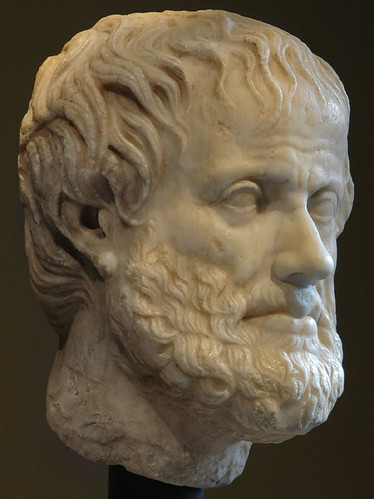Best Books on Philosophy of Science : The philosophy of science delves into the fundamental principles, methods, and assumptions underlying scientific inquiry. It grapples with questions about the nature of scientific knowledge, the process of scientific discovery, and the criteria for evaluating scientific theories. From discussions on the nature of scientific explanation to debates about scientific realism and anti-realism, the philosophy of science provides a rich and multifaceted exploration of the enterprise of science itself.
In this curated list, we present a selection of influential books that offer insights into various aspects of the philosophy of science. Spanning classic works to contemporary introductions, each book contributes to our understanding of the philosophical foundations of scientific inquiry. Whether examining the structure of scientific theories, analyzing the causal structure of the world, or exploring paradigm shifts in scientific revolutions, these texts provide a comprehensive overview of the central issues shaping the philosophy of science.
From foundational texts like Thomas S. Kuhn’s “The Structure of Scientific Revolutions,” which introduced the concept of paradigm shifts, to contemporary works such as Alex Rosenberg’s “The Philosophy of Science: A Contemporary Introduction,” which explores topics like scientific realism and naturalism, each book offers unique perspectives and thought-provoking insights.
Whether you’re a seasoned philosopher of science or a newcomer to the field, this list serves as a valuable resource for delving deeper into the philosophical underpinnings of scientific knowledge and inquiry. So, let’s embark on a journey through the philosophy of science and explore the myriad questions and challenges it presents.
“The Philosophy of Science: A Systematic Introduction” by J.J.C. Smart
This book provides a systematic introduction to the philosophy of science, covering key concepts and debates in the field. Smart discusses topics such as scientific methodology, the nature of scientific theories, and the demarcation problem.
“The Philosophy of Science: An Historical Anthology” edited by Timothy McGrew and Marc Alspector-Kelly
This anthology brings together historical readings in the philosophy of science, providing insights into the development of scientific thought over time. It features excerpts from key texts by leading philosophers, spanning ancient Greece to the present day.
“The Philosophy of Science: An Introduction” by Alexander Bird
Bird offers an introductory overview of the philosophy of science, covering fundamental topics such as scientific reasoning, explanation, and the nature of scientific theories. The book provides a comprehensive introduction to the field for students and general readers.
“The Philosophy of Science: An Introduction” by Geoffrey Gorham
Gorham’s introductory textbook provides a comprehensive overview of the philosophy of science, covering topics such as scientific reasoning, explanation, and the nature of scientific theories. It serves as a valuable resource for those new to the field.

“The Scientific Image” by Bas C. van Fraassen
In this influential work, van Fraassen defends scientific anti-realism, arguing that scientific theories should be viewed as tools for generating empirically adequate representations of the world rather than as descriptions of how the world objectively is.
Also Read: Philosophy of Education Philosophers
“The Structure of Scientific Revolutions” by Thomas S. Kuhn
Kuhn introduces the concept of paradigm shifts, proposing that scientific progress occurs through periods of normal science punctuated by revolutionary changes in scientific frameworks or paradigms. The book has had a significant impact on the philosophy of science.
“The Structure of Scientific Theories” by Frederick Suppe
Suppe analyzes the structure of scientific theories, examining how theories are formulated, tested, and modified in light of empirical evidence. The book provides insights into the conceptual framework underlying scientific inquiry.
“Theory and Reality An Introduction to the Philosophy of Science” by Peter Godfrey-Smith
Godfrey-Smith offers an introductory overview of the philosophy of science, covering topics such as scientific explanation, scientific realism, and the nature of scientific theories. The book explores key debates shaping contemporary philosophy of science.
“What is this thing called Science?” by Alan F. Chalmers
Chalmers provides an accessible introduction to the philosophy of science, covering topics such as scientific methodology, the demarcation problem, and the nature of scientific theories. The book examines key concepts and debates in the field, making it suitable for students and general readers.
“The Logic of Scientific Discovery” by Karl Popper
Popper introduces his theory of falsifiability, arguing that scientific theories should be formulated in a way that allows for empirical testing and potential falsification. He emphasizes the importance of refutability as a criterion for distinguishing scientific theories from pseudoscience.
“The Nature of Scientific Discovery” by Peter Achinstein
Achinstein explores various aspects of scientific discovery, including the process of hypothesis formation, the role of experimentation, and the criteria for evaluating scientific theories. He examines case studies of scientific discoveries and assesses their significance for our understanding of scientific inquiry.
Also Read: The Philosophy of Aesthetics and Beauty: Exploring the Nature of Art and Its Appeal
“The Nature of Scientific Explanation” by Philip Kitcher
Kitcher investigates the nature of scientific explanation, analyzing different models and approaches to explaining phenomena in science. He discusses the criteria for evaluating explanations and explores the relationship between explanation and understanding in scientific practice.
“The Oxford Handbook of Philosophy of Science” edited by Paul Humphreys
This handbook offers a comprehensive overview of the philosophy of science, featuring contributions from leading scholars on a wide range of topics. It covers various aspects of scientific inquiry, including scientific explanation, scientific realism, the philosophy of physics, and the social dimensions of science.
“The Philosophy of Science: A Contemporary Introduction” by Alex Rosenberg
Rosenberg provides a contemporary perspective on the philosophy of science, discussing issues such as scientific realism, naturalism, and the relationship between science and metaphysics. He explores key debates and concepts shaping contemporary discussions in the field of philosophy of science.
“Scientific Explanation and the Causal Structure of the World” by Wesley C. Salmon
In this book, Salmon examines the nature of scientific explanation with a focus on causal explanations. He explores how causation operates within scientific theories and how causal structures contribute to our understanding of the world.
“Scientific Explanation” by Wesley C. Salmon
This book provides a comprehensive analysis of scientific explanation, covering various models and approaches to understanding how science explains phenomena. Salmon discusses the criteria for evaluating explanations and the role of causation in scientific explanations.
“Scientific Revolutions” by Ian Hacking
Hacking delves into the concept of scientific revolutions, exploring the transformative changes that occur in scientific thought over time. He examines case studies of significant scientific revolutions and analyzes their impact on scientific knowledge and practice.
“The Dappled World: A Study of the Boundaries of Science” by Nancy Cartwright
Cartwright challenges the traditional view of scientific laws as universal generalizations. She argues for a more nuanced understanding of scientific theories, emphasizing the contextual and localized nature of scientific explanations and predictions.
“The Empirical Stance” by Bas C. van Fraassen
In this influential work, van Fraassen presents the empirical stance as an alternative to scientific realism. He argues that scientists should adopt an empirically adequate stance, focusing on what can be observed and measured, rather than committing to the truth of unobservable entities posited by scientific theories.
Here’s a brief description of each of these books:
“Philosophy of Science: The Central Issues” edited by J.A. Cover and Martin Curd
This anthology brings together classic and contemporary readings on central issues in the philosophy of science, providing a comprehensive overview of the field’s foundational debates and concepts.
“Philosophy of Science: The Historical Background” by Alexander Bird
This book offers a historical overview of the development of the philosophy of science, tracing its roots from ancient Greece to the present day, and examining key historical figures and their contributions to the field.
“Philosophy of Science: The Nature of Scientific Explanation” by Philip Kitcher
Kitcher explores various models of scientific explanation and evaluates their effectiveness in capturing the nature of scientific inquiry, addressing questions about what constitutes a satisfactory explanation in science.
“Realism and the Aim of Science” by Karl Popper
Popper discusses the concept of scientific realism and its importance in scientific inquiry, arguing that the aim of science is not to confirm theories but to falsify them, and advocating for a critical approach to scientific theories.
“Science and Hypothesis” by Henri Poincaré
Poincaré’s work explores the philosophy of science and mathematics, discussing the nature of scientific hypotheses, the role of intuition and creativity in scientific discovery, and the relationship between theory and observation in scientific inquiry.
“Philosophy of Science: The Central Issues” by Martin Curd and J.A. Cover
This book brings together classic and contemporary readings on fundamental topics in the philosophy of science. It covers a wide range of central issues, including the nature of scientific explanation, the demarcation problem (distinguishing science from pseudoscience), the structure of scientific theories, scientific realism versus antirealism, the role of observation and evidence in scientific inquiry, and the social dimensions of science. The anthology provides a comprehensive overview of the key debates and concepts shaping the field of philosophy of science.
Also Read: Quantum Physics and Spirituality: A Unique Perspective
“Against Method” by Paul Feyerabend
This book challenges the idea of a fixed scientific method and argues for methodological pluralism, suggesting that there is no single correct way to conduct scientific inquiry.
“An Introduction to the Philosophy of Science” by Janet A. Kourany
This introductory textbook provides an overview of key concepts and debates in the philosophy of science, covering topics such as scientific reasoning, explanation, and the demarcation problem.
“Philosophy of Science: A Contemporary Introduction” by Alex Rosenberg
Offering a contemporary perspective, this book discusses issues such as scientific realism, naturalism, and the relationship between science and metaphysics.
“Philosophy of Science: A Contemporary Introduction” by Heather Douglas
Similar to Rosenberg’s work, this book provides an updated overview of contemporary debates in the philosophy of science, including discussions on scientific explanation and methodology.
“Philosophy of Science: A Very Short Introduction” by Samir Okasha
This concise introduction covers key concepts and debates in the philosophy of science, making it accessible to readers new to the field.
“Philosophy of Science: An Introduction” by Peter Godfrey-Smith and Daniel Stoljar
This introductory textbook covers a wide range of topics in the philosophy of science, including scientific realism, scientific explanation, and the scientific method.
“Philosophy of Science: Key Concepts” by Steven French
This book provides a concise overview of key concepts in the philosophy of science, including realism, empiricism, confirmation, and the scientific method. Read About Philosophy of Science


